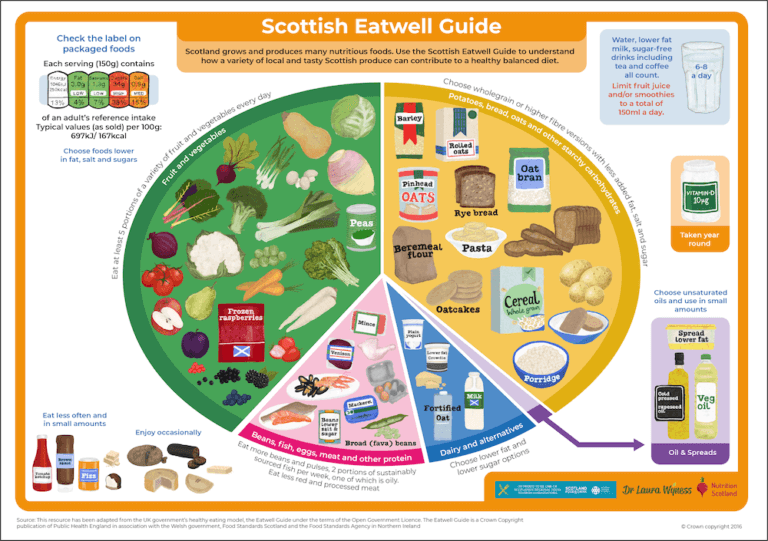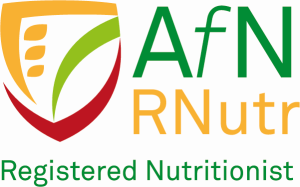Your immune system needs a variety of nutrients to function well. There is no single food for boosting your immunity (there are no ‘superfoods’ – its just a clever marketing term). Also, there are no approved European Food Safety Authority health claims for a particular food or food component that protects against infection. However it is useful to eat a healthy balanced diet to support your immune function. So what is a healthy balanced diet?
What is a healthy balanced diet?
Plenty fruits and vegetables – at least 5 portions a day, but 7 or even 10 portions are better. Fresh, frozen, canned and dried all count. Fruit and vegetables provide a wide range of vitamins, minerals, phytonutrients and fibres that benefit health and well-being.
Starchy carbohydrates such as potatoes, bread, rice, oats, noodles, cereals. Aim to include one of these types of foods at each meal time. Opt for wholegrains where possible.
Space your protein throughout the day. Protein foods include meat, fish, eggs, soy products, beans, pulses, plain nuts and lentils. Aim to include one of these at each meal time. Including two portions of fish a week, one of which should be an oily fish (salmon, trout, mackerel, sardines) will provide beneficial omega-3 fatty acids.
Dairy and alternatives – dairy foods are nutrient dense so aim to have some milk and dairy foods (or dairy alternatives) each day.
Limit foods with lots of sugars and fats. These include sweets, cakes, crisps and sugary soft drinks.
Eat a rainbow of different coloured fruit and vegetables as different coloured plant foods have different phytonutrients, all with various benefits to health and immunity.
Drink plenty water. Fluid requirements can vary widely depending on body size and composition and factors such as age, climate and physical activity. Recommendations generally suggest 1.5-2 litres a day.
Key nutrients for your immune system
Key nutrients for a healthy immune system include: vitamins A, C, D, Iron, Zinc and Selenium
Useful foods to include for getting these nutrients – Meat, fish, dairy, eggs, nuts and seeds and of course lots of fruits and vegetables.
The benefits of fibre-rich foods
Include fibrous foods (plant foods, beans, pulses, wholegrains) to help keep your gut happy. The majority of your immune system originates from your gut microbiome so if you look after your gut health, then your immunity is likely to benefit. Variety in the diet is also key for a healthy gut. Pre-biotic foods (e.g. onions, leeks, shallots, garlic, banana, artichokes, oats, apples and asparagus) and probiotic foods (natural yoghurt, kefir, kimchi, sauerkraut) can help support a healthy gut microbiome and therefore a healthy immune system.
Daily vitamin D supplement
Even with a healthy balanced diet, it’s good practice to take a vitamin D supplement daily. This is because we get most of our vitamin D from the sun. However during the autumn and winter months from around October to March, and if you are not going outside much due to self-isolation, it’s particularly important to take supplementary vitamin D. For more info vitamin D see my previous article here.











